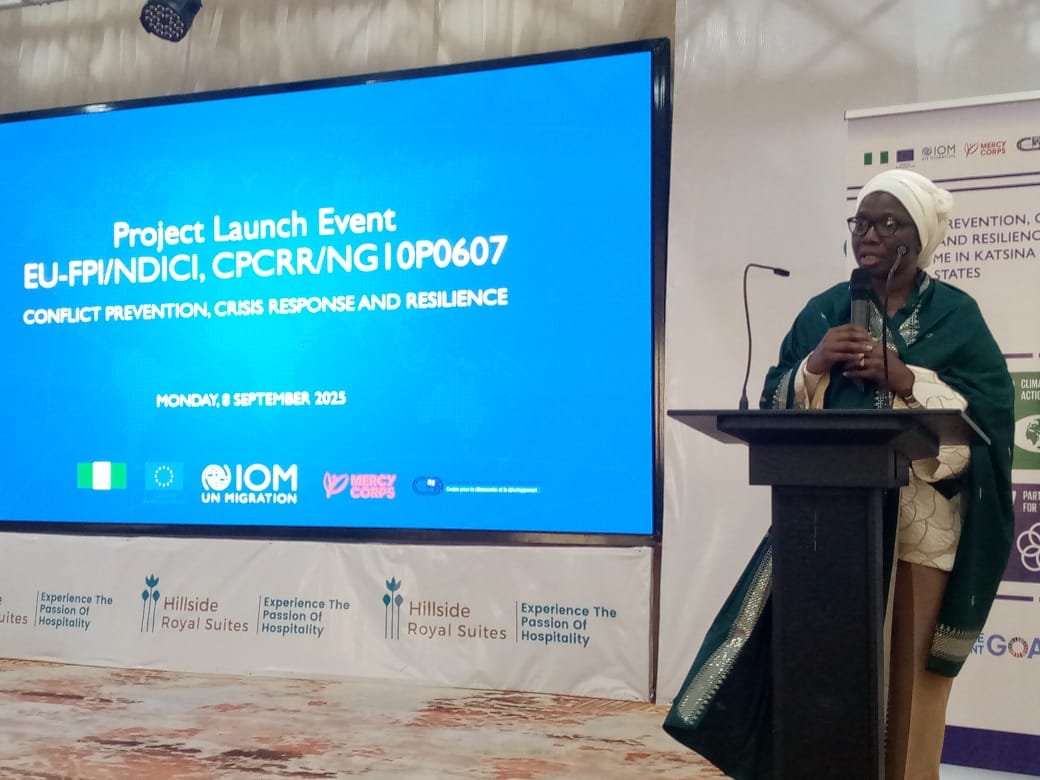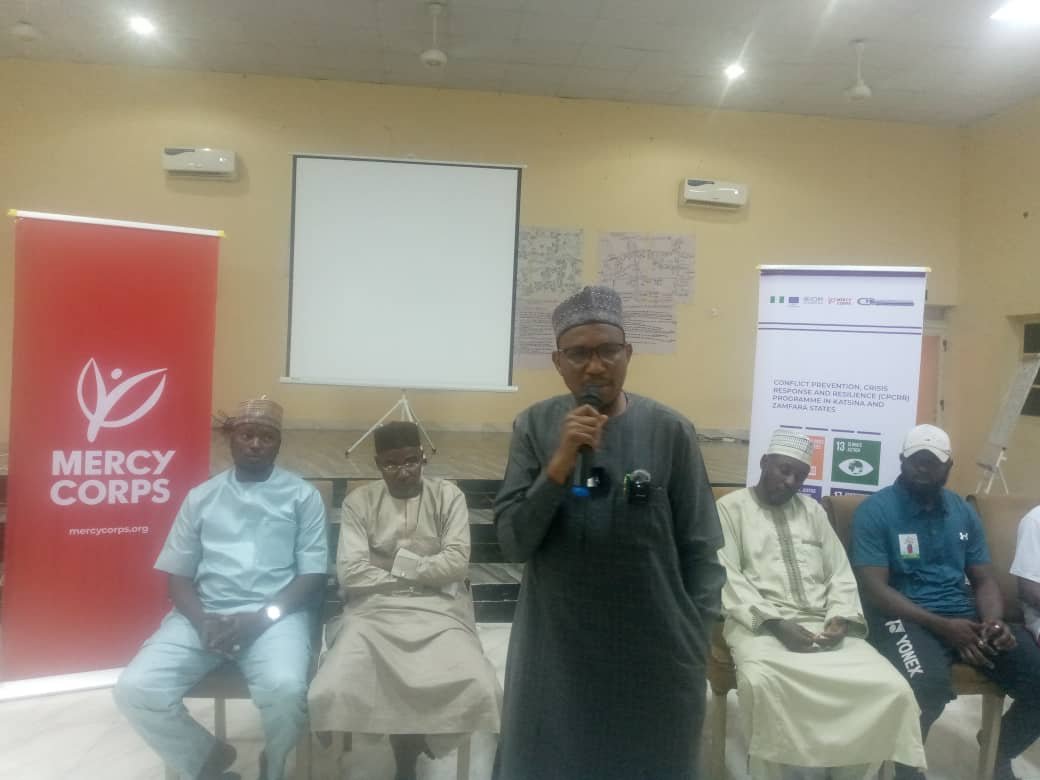IOM unviels €5.1m conflict prevention, resilience project for Katsina, Zamfara
By Zubairu Idris

The International Organisation for Migration (IOM), on Monday unvieled a €5.1 million project supported by the European Union on conflict prevention, crisis response and resilience in Katsina and Zamfara States.
The News Agency of Nigeria (NAN) reports that the 18-months project would be implemented in collaboration with Mercy Corps and Centre for Democracy and Development (CDD).
It targets IDPs, returnees, host communities, government stakeholders across eight local governments in Katsina State and two in Zamfara.
The IOM Nigeria Chief of Mission, Ms Dimanche Sharon, said that the programme is about turning the people’s resilience into lasting peace and stability.
“It means creating local peace committees so disputes can be solved around the table, not through violence.
“It also means restoring livelihoods through skills training, farming support, and small businesses so young people and women can build their futures free from fear.
“With support from the European Union/Foreign Policy Instruments (FPI), and in partnership with Mercy Corps Netherlands and the Centre for Democracy and Development, IOM Nigeria is working hand-in-hand with government, partners and communities, to address the root causes of conflicts,” she said.
According to her, the programme would reach over 95,000 persons in the two states.
In his remarks, the EU Ambassador to Nigeria, Amb. Gautier Migno, said that the EU would continue to support Nigeria’s sustainability and development.
He said that the EU had already stepped up support to education and energy sectors, pointing out that it is now focusing on peace and security.
Migno added that women and people with disabilities would be involved in peace-building processes in communities befitting from the programme.
Katsina State Governor, Dikko Radda, while declaring open the programme, said it would usher in a new era of hope and development in the state.
He said that the ongoing conflicts has led to the closure of some schools in the frontline local government areas while farmers had been forced to abandon their farmlands.
The governor, therefore, said that the crisis require great commitment from the government and other stakeholders to contain, and commended the EU for funding the project as of efforts to address the problems.





